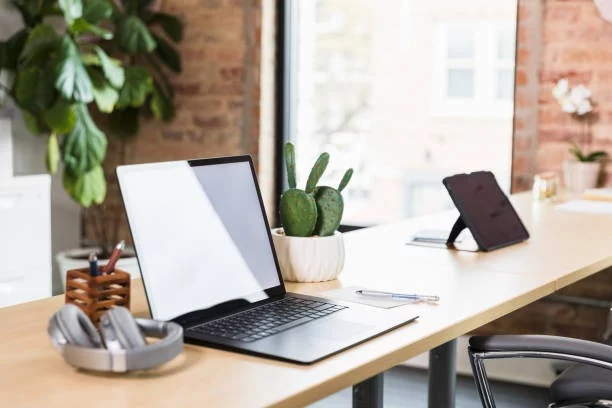Working from home has become the norm for many, making it essential to create a functional and well-equipped workspace. A thoughtfully designed home office not only boosts productivity but also minimizes distractions and promotes a healthier work-life balance. Whether you’re setting up your first workspace or enhancing your current one, choosing the right essentials is key. Start by selecting an office desk for sale that serves as the foundation of your work environment, providing both comfort and efficiency.
A Practical and Comfortable Office Desk
A desk is the centerpiece of any workspace, so it’s important to choose one that fits your needs. When looking for an office desk for sale, focus on size, surface area, and functionality. A good desk should have enough space for your laptop, a writing area, and any other daily tools. Features like drawers or shelves can help keep things organized. Think about your space and work style—compact desks work for smaller areas, while larger desks are great for multitasking or dual monitors. The right desk can make your workspace more efficient and comfortable.
Ergonomic Chair for Long Hours
A comfortable, supportive chair is just as important as your desk for an efficient workspace. Sitting for long periods in a poorly designed chair can strain your back, neck, and shoulders. Choose a chair with adjustable height, lumbar support, and a cushioned seat. Your feet should rest flat on the floor, and your arms should align with your desk. Even the best desk can’t make up for an uncomfortable chair. A quality office chair improves posture and boosts productivity by making your workday more comfortable.
Organized Storage Solutions
A tidy workspace boosts productivity, and smart storage solutions keep you organized. File cabinets, shelves, or under-desk drawers are great for storing documents and supplies out of sight but within reach. If your desk has built-in storage, even better—it saves space and maintains order. Use bins or organizers for smaller items like pens, cables, and sticky notes. A clutter-free desk reduces stress and improves focus, helping you stay productive.
Proper Lighting Setup
Lighting is key to a comfortable and productive workspace. While natural light is ideal, not all spaces have access to it. In those cases, use a desk lamp or overhead lighting with soft, glare-free illumination. Poor lighting can cause eye strain and fatigue, affecting productivity. Adjustable task lights are great for targeting specific areas, and warmer bulbs create a cozy feel, while cooler tones boost focus—choose what works best for you.
Functional Technology Accessories
To boost productivity, the right tools beyond your computer are key. A reliable mouse, keyboard, second monitor for multitasking, and a quality headset for meetings can improve workflow. Make sure your desk has enough space to hold this equipment without clutter. Cable organizers are also a smart investment to keep wires tidy, as messy cords can make a workspace feel chaotic.
Personal Comfort Essentials
Long work hours need a workspace that prioritizes comfort. Simple additions like a footrest, wrist pad, or desk fan can make a big difference during long work sessions. To reduce eye strain, try blue light filters or a screen protector. These small adjustments can boost both comfort and focus, proving that small details matter.
Touches of Personality
Your home workspace doesn’t have to be dull. Adding personal touches like artwork, family photos, or a small plant can make it more inviting and enjoyable. A personalized space fosters comfort and boosts focus. Just keep it minimal—too many items can create distractions. With a few simple additions, you can elevate your workspace and mood without losing functionality.
A Defined Work Zone
Working from home requires clear boundaries. Even without a separate room, furniture or partitions can create a dedicated workspace. This signals your brain to focus while you’re there and helps you disconnect when you step away. Choosing the right desk is key—it should fit your setup and support the separation between work and personal life. Even a small boundary can boost productivity and keep work and downtime from blending together.
Conclusion
Creating a functional home workspace doesn’t have to be expensive or complicated—it just takes thoughtful design. Start with the basics: a sturdy desk, ergonomic chair, good lighting, and your most-used tools. Stay organized to boost efficiency, stay comfortable, and add a personal touch. With these essentials, your home office can be just as productive—and more comfortable—than a traditional workplace.

Lexy Summer is a talented writer with a deep passion for the art of language and storytelling. With a background in editing and content creation, Lexy has honed her skills in crafting clear, engaging, and grammatically flawless writing.


